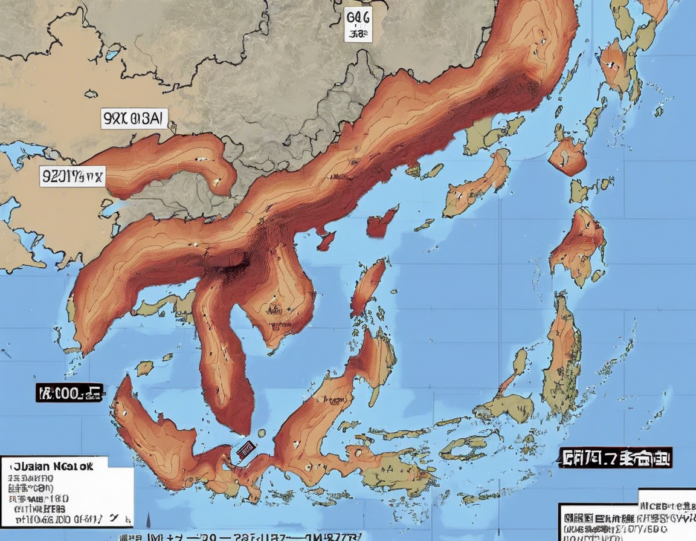Natural disasters can strike at any moment, leaving devastating impacts in their wake. On October 21, 2021, Japan experienced a significant event as a magnitude 6.0 earthquake rocked the country. The earthquake struck at a depth of 42 kilometers (26 miles) in the region of Fukushima, resulting in widespread tremors felt across the country. The seismic activity triggered fears of potential tsunamis and aftershocks, raising concerns for the safety and well-being of those in affected areas.
Understanding Earthquakes
Earthquakes are geological events caused by the sudden release of energy in the Earth’s crust, leading to seismic waves that shake the ground. The magnitude of an earthquake indicates its size and strength, with higher magnitudes signifying more significant impact. Japan, located along the Pacific Ring of Fire, is particularly prone to earthquakes due to its position on multiple tectonic plate boundaries.
Impact of the Earthquake
The magnitude 6.0 earthquake in Japan had far-reaching consequences, affecting various aspects of life in the region. The tremors led to structural damage in buildings, roads, and infrastructure, posing risks to the safety of residents. Additionally, the earthquake disrupted transportation networks, with train services being temporarily halted and roads closed for inspection.
Response and Recovery Efforts
In the aftermath of the earthquake, emergency response teams were deployed to assess the damage and provide assistance to those in need. Authorities issued tsunami warnings as a precautionary measure, urging residents to move to higher ground and stay vigilant. The Japanese government activated disaster response protocols, coordinating efforts to ensure the safety and well-being of the affected population.
Lessons Learned from Past Disasters
Japan has a long history of coping with natural disasters, including earthquakes, tsunamis, and typhoons. The country has made significant strides in disaster preparedness and resilience, drawing lessons from past calamities to improve response strategies and infrastructure. Initiatives such as earthquake drills, early warning systems, and seismic retrofitting have been implemented to minimize the impact of future disasters.
Staying Safe During Earthquakes
In light of the recent earthquake in Japan, it is crucial for individuals to be aware of safety measures to follow during seismic events. Some key precautions include:
- Drop, Cover, and Hold On: During an earthquake, seek cover under a sturdy table or desk to protect yourself from falling objects.
- Stay Indoors: If inside a building, stay indoors and avoid running outside during the tremors.
- Evacuation Plan: Have an evacuation plan in place, including a designated meeting point for family members.
- Emergency Kit: Prepare an emergency kit with essential supplies such as food, water, medications, and first-aid items.
- Stay Informed: Stay updated on emergency alerts and instructions issued by local authorities through reliable sources.
FAQs (Frequently Asked Questions)
Q: How common are earthquakes in Japan?
A: Japan experiences thousands of earthquakes each year due to its location on tectonic plate boundaries.
Q: What should I do during an earthquake?
A: Drop, cover, and hold on to protect yourself from falling objects, and follow evacuation procedures if necessary.
Q: Are tsunamis a common occurrence after earthquakes in Japan?
A: Due to its coastal geography and tectonic activity, Japan is at risk of tsunamis following earthquakes.
Q: How does Japan prepare for earthquakes and other natural disasters?
A: Japan invests in advanced early warning systems, disaster response protocols, and infrastructure resilience measures.
Q: What are the long-term impacts of earthquakes on affected areas?
A: Earthquakes can have lasting effects on communities, including infrastructure damage, economic losses, and emotional trauma.
In conclusion, the magnitude 6.0 earthquake in Japan serves as a stark reminder of the unpredictable nature of natural disasters and the importance of preparedness and resilience. By learning from past experiences, implementing safety measures, and fostering a sense of community awareness, individuals and communities can effectively navigate the challenges posed by earthquakes and other catastrophic events.




